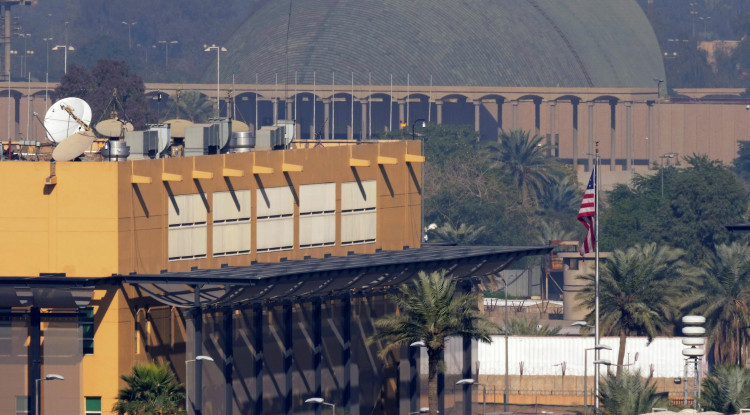The United States has begun withdrawing non-essential diplomatic staff and military families from key posts across the Middle East as tensions with Iran escalate ahead of a critical deadline in nuclear negotiations.
President Donald Trump confirmed the drawdown Wednesday, telling reporters, "It could be a dangerous place, we'll see what happens." The move follows a Monday meeting with Israeli Prime Minister Benjamin Netanyahu and a Camp David session last weekend with top national security advisers.
According to State Department officials, the U.S. is ordering the departure of staff from embassies in Baghdad, Bahrain, and Kuwait, as well as from the U.S. consulate in Erbil. Defense Secretary Pete Hegseth separately authorized the voluntary departure of dependents from several U.S. military installations in the region.
"The safety and security of our service members and their families remains our highest priority," said a Pentagon official. "U.S. Central Command is monitoring the developing tension in the Middle East."
The decision came hours after the U.K. government's maritime trade operations warned vessels to exercise caution transiting the Arabian Gulf, Gulf of Oman, and Strait of Hormuz due to increased tensions "which could lead to an escalation of military activity."
Trump has grown skeptical about the viability of a new nuclear agreement with Tehran. "I'm getting more and more less confident about it," he said in a podcast interview published Wednesday. "They seem to be delaying, and I think that's a shame."
Iran has not yet responded to the latest U.S. proposal. A planned sixth round of negotiations, scheduled for Sunday in Muscat, now appears unlikely. The International Atomic Energy Agency is also expected to vote Thursday on a resolution condemning Iran's nuclear non-compliance.
Meanwhile, Israeli officials say the Israel Defense Forces remain on high alert. Intelligence obtained by the U.S. suggests Israel is preparing for a potential strike on Iranian nuclear facilities, though no final decision has been made.
Iran's defense minister, Brig. Gen. Aziz Nasirzadeh, warned Wednesday of regional consequences should the talks collapse. "The adversary will certainly suffer heavier casualties," he said. "The U.S. will have no choice but to leave the region, as all of its bases are within the reach of Iranian military."
White House envoy Steve Witkoff is still scheduled to meet Iranian Foreign Minister Abbas Araghchi in Muscat on Sunday, pending confirmation. "A nuclear Iran poses an existential threat to Israel-and it is also an existential threat to the United States," Witkoff said Wednesday. "We must stand together resolutely so that Iran does not go nuclear-no matter what the cost to prevent it."





